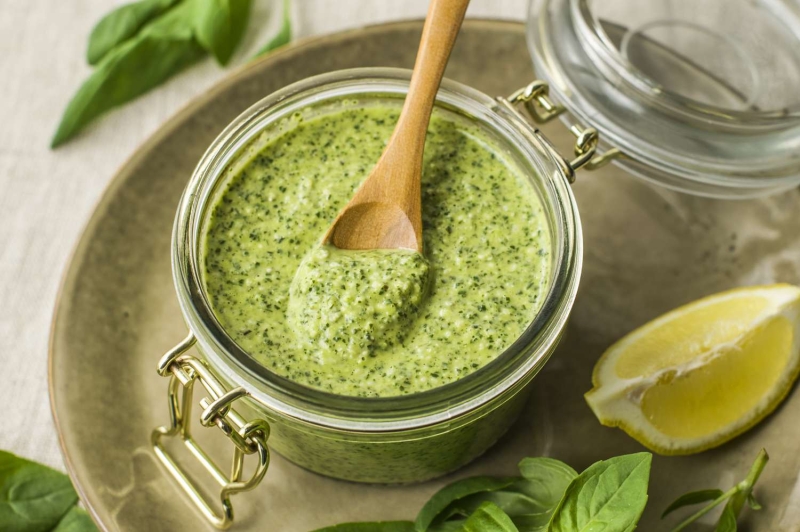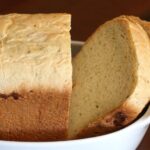It Tastes Like Summer
Prep: 20 mins
Cook: 5 mins
Total: 25 mins
Servings: 4 servings
Yield: 1 cup
Pesto is widely available pre-made, but no processed container of green stuff can hold a candle to homemade pesto. When the basil starts coming on strong in your garden or at the market in the summer months, it's time to break out the food processor and start making pesto.
A little of this aromatic sauce will go a long way—don't be surprised if you find yourself reaching for spoonfuls to go with pasta, fish, steak, and so much more.
What’s In Pesto Sauce?
Pesto is a paste made of basil, garlic, pine nuts, cheese, all held together by olive oil. Lemon juice is not traditionally called for, but we find that it adds a dash of zingy brightness.
The Origins of Pesto Sauce
The word pesto comes from the Italian term "pestare," which translates to crush or pound, a nod to the original technique used to make it. Pesto was invented in Genoa, where it was first made by pounding the ingredients in a mortar and pestle.
Today, most recipes—including this one—call for making pesto in a food processor, but you can certainly do it the traditional way.
Pesto with a Mortar & Pestle
Instead of using a food processor, you can get traditional and use a mortar and pestle instead. Use a large one so you have room to work. Grind the garlic and salt together before adding the basil, working that into somewhat of a paste, and then add the lemon juice and olive oil. As with the blender method, pine nuts and Parmesan go last.
What to Look for When Buying Basil
Whether you're shopping for basil or picking it from your garden, look for bright green leaves with no wilting. The basil should smell fragrant, too.
Making the Brightest Green Pesto
For bright green pesto that won't darken in the fridge or freezer, blanch it in boiling water for a few seconds before making your pesto. This is completely optional and doesn't change the flavor, but it ensures the pesto stays a bright, vivid green. If you want to blanch your basil, do so as the first step before you chop the garlic.
Ways to Use Pesto
Once you have fabulous homemade pesto in the house, serve it on the pasta of your choice, use it as a dip, try it over fresh boiled potatoes, or drizzle it on grilled vegetables. Here are more delicious recipes featuring pesto:
- Pesto Salmon Pasta
- Grilled Chicken Panini Sandwich With Pesto
«This pesto is so vibrant and fresh and absolutely delicious on pasta. Depending on how thick or thin you prefer your pesto sauce, you can add less water. Since I knew I wanted to freeze some for later, I blanched the basil first and the sauce has stayed beautifully green!» —Patty Lee
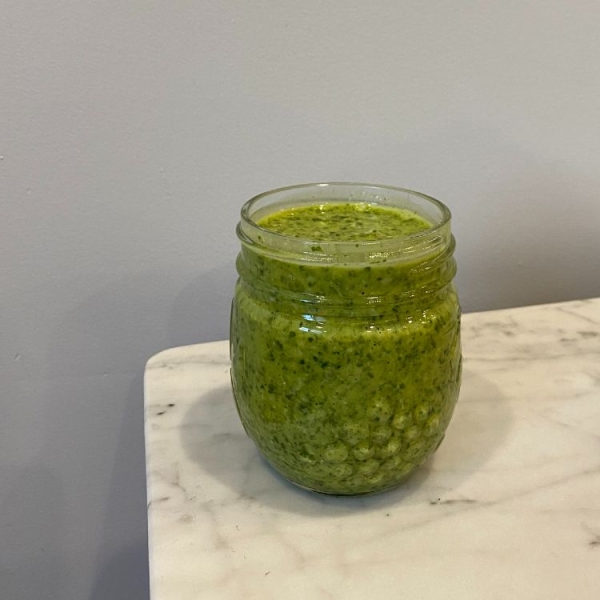
A Note From Our Recipe Tester
Ingredients
-
5 cups fresh basil leaves (about 5 ounces)
-
4 cloves garlic
-
1/2 cup extra-virgin olive oil
-
2 tablespoons lemon juice
-
1/4 teaspoon fine sea salt, plus more to taste
-
1/2 cup lukewarm water
-
1/4 cup pine nuts
-
1/2 cup shredded Parmesan cheese, or other aged cheese
Steps to Make It
-
Gather the ingredients.
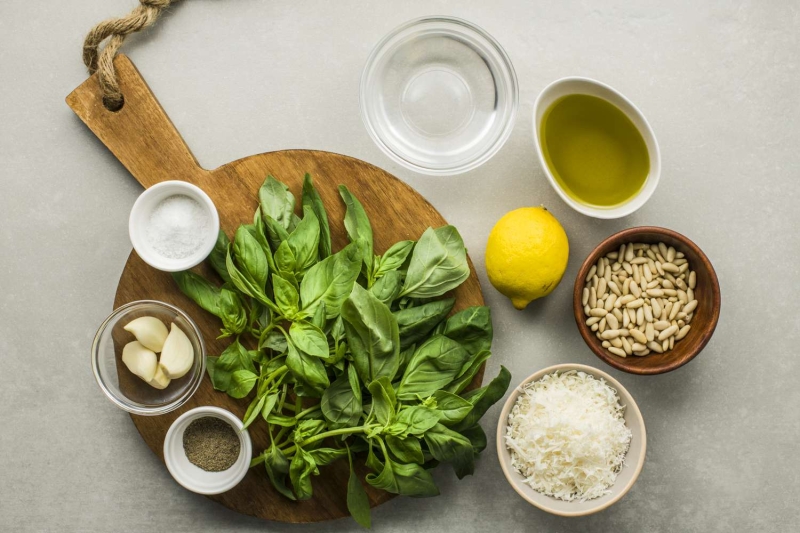
-
If you're blanching the basil, do it now. (Instructions follow the recipe below.)
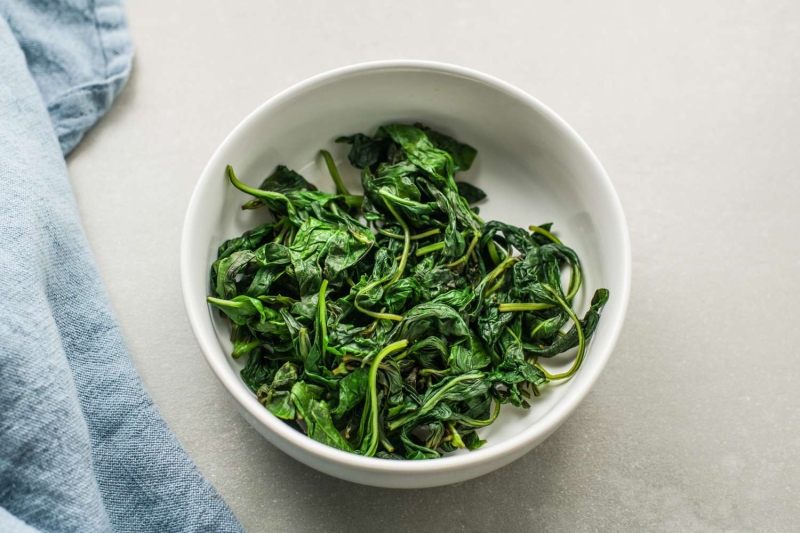
-
Peel and roughly chop the garlic.
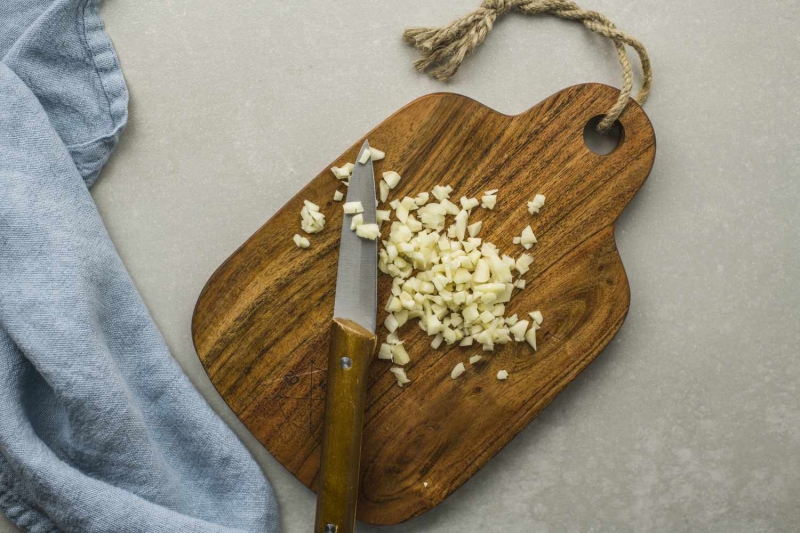
-
Put the basil, garlic, olive oil, lemon juice, and salt in a blender or food processor.
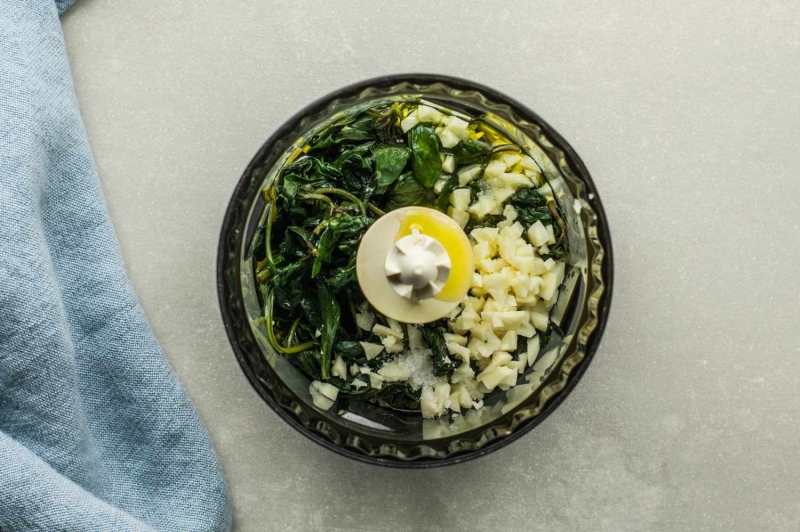
-
Whirl until completely pureed, scraping down the sides as necessary to keep the mixture uniform.
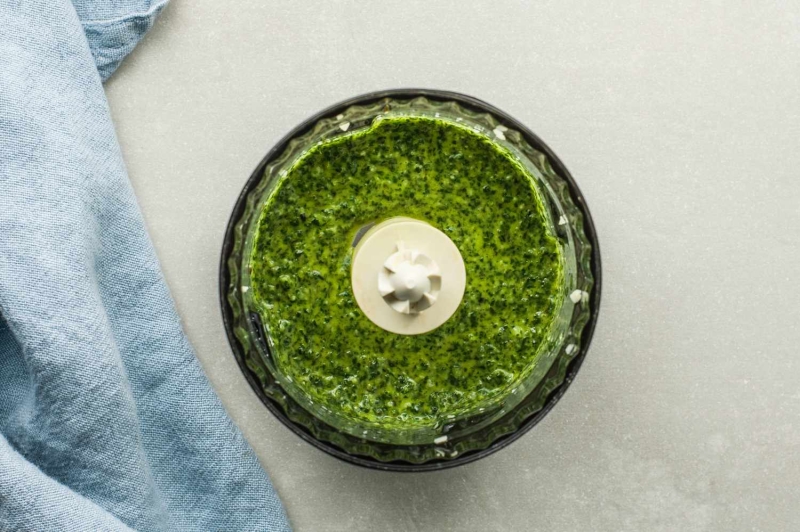
-
Add up to 1/2 cup water to keep the mixture blending and smooth (adding more oil will just make the mixture oily and likely to separate when you serve it).
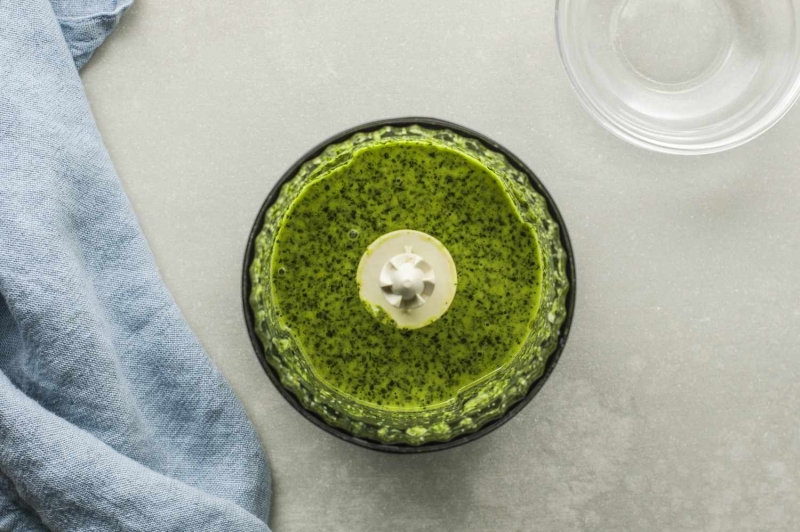
-
Add the pine nuts and cheese and pulse until chopped and well incorporated.
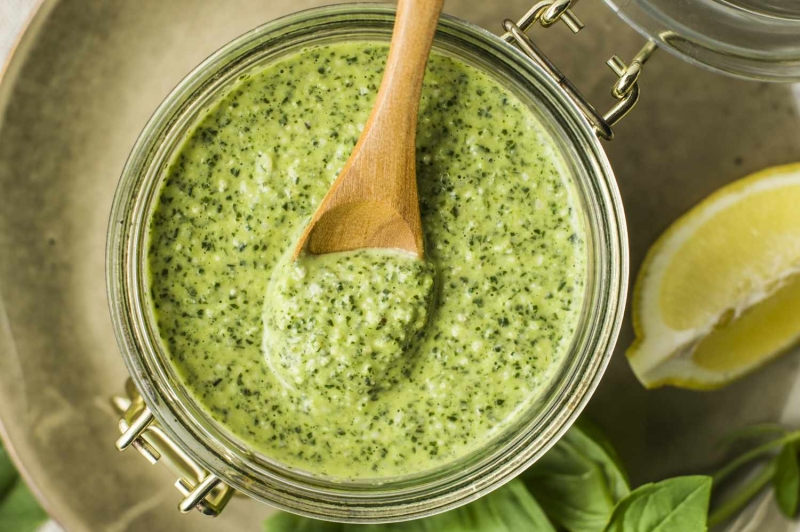
-
Serve with hot pasta or refrigerate, covered, up to one week or freeze up to six months.
How to Blanch Basil
-
Optional, but keeps the pesto green: Bring a large pot of water to a boil. Add enough salt so it tastes salty.
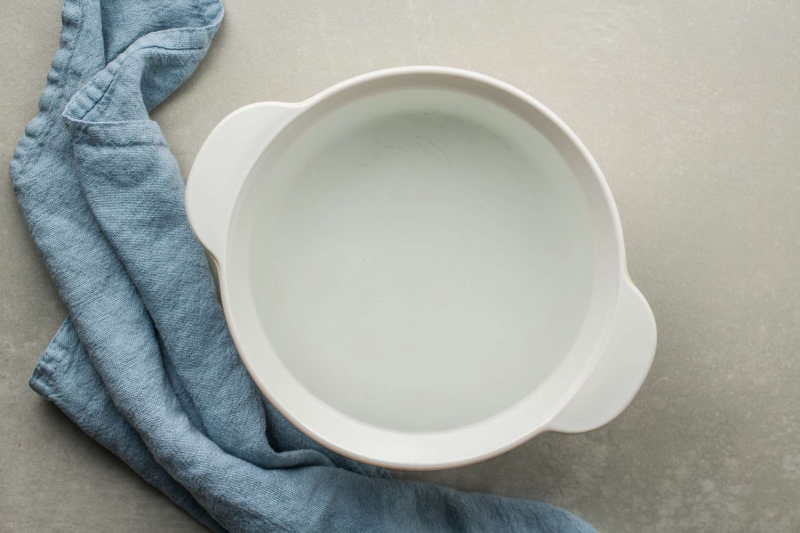
-
Prepare a large bowl of ice water.
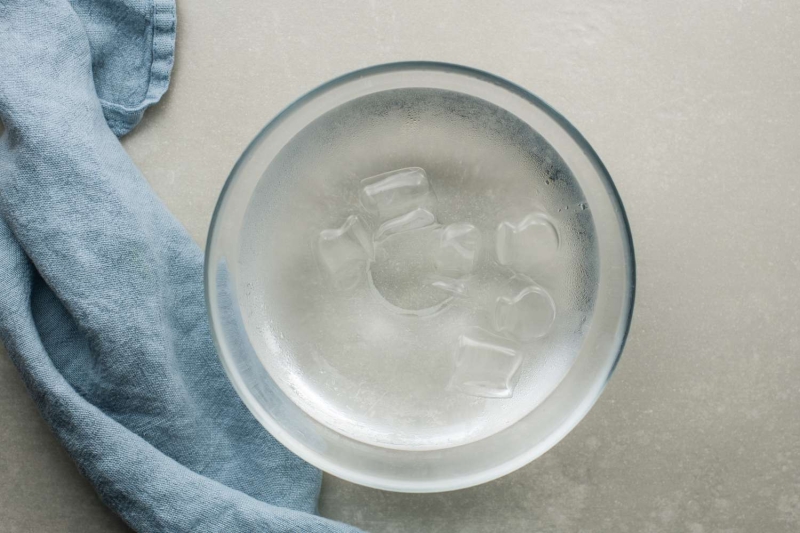
-
Put the basil leaves in the boiling water and cook for 30 seconds, until wlited.
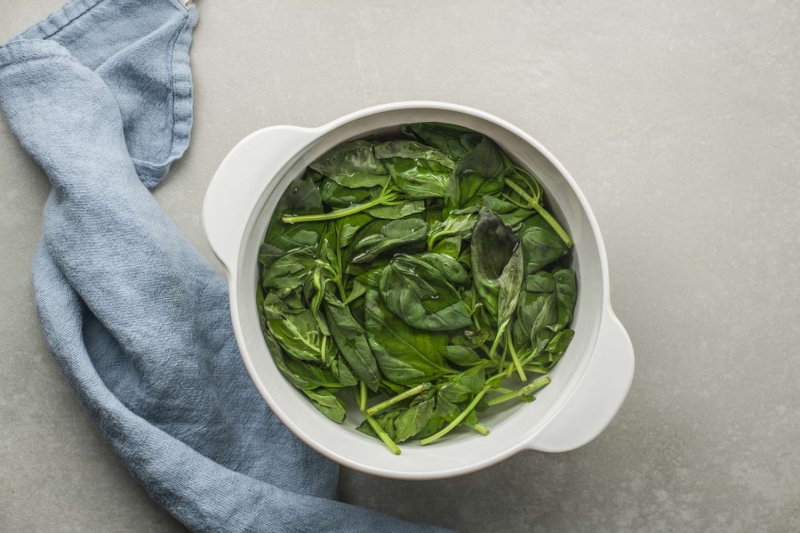
-
Drain (or use a slotted spoon to scoop out if you're working in batches) and immediately put the basil in the ice water. Swish the basil leaves around until they're completely cooled off.
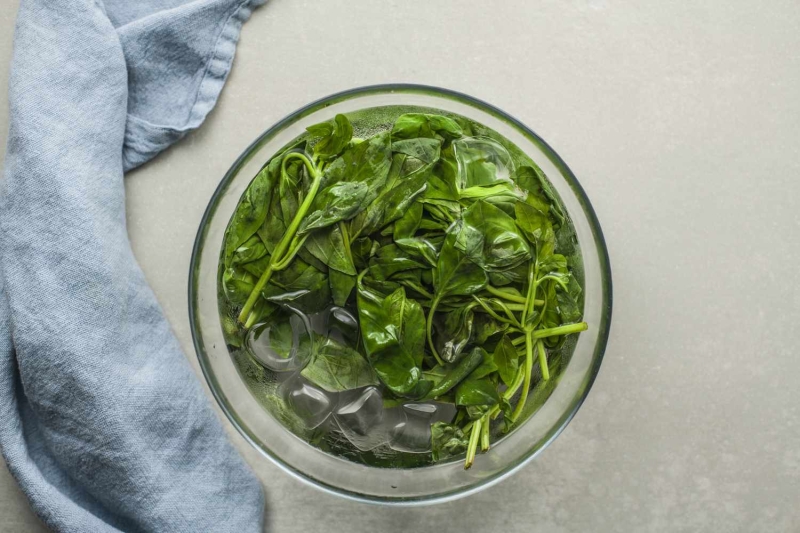
-
Drain from the water bath and, using your hands, squeeze as much water as you can from the basil leaves. Be aggressive here and squeeze hard.
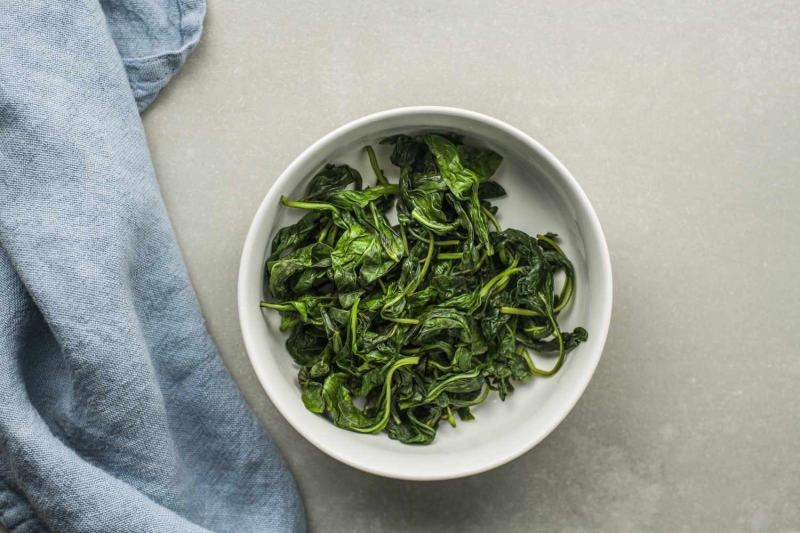
-
Use to make pesto!
Recipe Variation
You can swap out some or all of the basil for other greens, such as spinach, kale, or even carrot greens.
How to Store and Freeze Pesto
- To store pesto, pour into a small jar and drizzle with a bit of olive oil to keep the top from browning.
- If you want to freeze the pesto for long-term storage, spoon the sauce into an ice cube tray. Place in the freezer and once frozen, pop the cubes out and keep in a zip-top bag. Frozen pesto will be good in the freezer for up to six months.
| Nutrition Facts | |
|---|---|
| Servings: 4 | |
| Amount per serving | |
| Calories | 350 |
| % Daily Value* | |
| Total Fat 36g | 46% |
| Saturated Fat 6g | 29% |
| Cholesterol 7mg | 2% |
| Sodium 307mg | 13% |
| Total Carbohydrate 4g | 1% |
| Dietary Fiber 1g | 3% |
| Total Sugars 1g | |
| Protein 6g | |
| Vitamin C 7mg | 37% |
| Calcium 187mg | 14% |
| Iron 2mg | 10% |
| Potassium 169mg | 4% |
| *The % Daily Value (DV) tells you how much a nutrient in a food serving contributes to a daily diet. 2,000 calories a day is used for general nutrition advice. | |
